Do you want to learn how to make your hostas grow bigger? Check out our list of helpful tips that can help you grow big, beautiful hostas. Let’s get started…
Do you want to know the secret of how to make hostas grow big? Everyone dreams of having huge, lush hostas sprawling over their yard, but this can be easier said than done.
Luckily, I’m an experienced gardener who takes great pride in my massive hostas. I invite you to read as I share my most successful secrets, tips, and tricks below!
- 1. Practice Patience
- 2. Strike a Balance Between Shade and Sun
- 3. Don’t Remove the Dead Foliage
- 4. Protect Your Hosta Shoots
- 5. When Moving Hostas, Tie up the Leaves
- 6. Don’t Divide Hostas to Make Them Grow Bigger
- 7. Divide the Plants to Make Them Fuller
- 8. Routinely Clean Around Your Hostas
- 9. Use Mulch to Keep the Soil Moist
- 10. Create the Best Soil for Your Hostas
- 11. Choose Your Hosta Varieties Carefully
- 12. Plant Your Hostas Correctly
- 13. Water Your Hostas Properly
- 14. Introduce Nutrients by Fertilizing Your Hosta Plants
- 15. Plant the Larger Hosta Varieties
- 16. Introduce Worms to Your Soil
- 17. Use Epsom Salt for Bigger and Lusher Hosta Growth
- 18. Revive Your Dying Hostas
- 19. Perform Routine Maintenance
- 20. Take Care of Pests
- 21. Protect Your Plants from Disease
- Closing Thoughts on How to Make Hostas Grow Bigger
1. Practice Patience
Wouldn’t it be fantastic if you could plant your hostas one day and come back out the next to a full and lush garden brimming with huge plants? However, everything good comes to those who wait, and this includes big hostas.
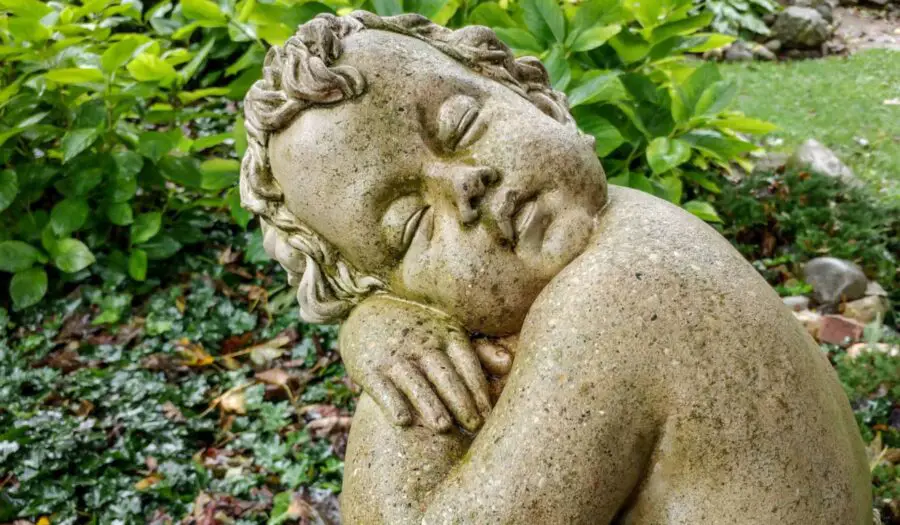
By nature, hostas grow rapidly, and they can take between two and four years to grow to their full potential.
The goal when you plant them is to give them enough room to spread out when you first plant them. Remember, some species can spread up to three times as wide as they grow tall.
2. Strike a Balance Between Shade and Sun
To encourage hosta growth, you need to strike the correct balance between shade and sun. Almost all hosta species like to have bright shade. Even sun-tolerant hostas do not grow well in direct sunlight, especially if they’re growing in direct afternoon sun.
You want to give your hostas partial to dapple shade . Green, blue, and variegated hostas will grow better in slightly deeper shade conditions while gold and yellow varieties need more light.
3. Don’t Remove the Dead Foliage
When you see dead foliage in your hostas at the end of the growing season, one of the first things you want to do is remove it straight away.
However, it’s almost always a better strategy to wait until spring comes around to clean away all of last year’s growth remains. Also, many hosta leaves can go dormant and look dead so you’d be cutting away potentially healthy plant parts.
4. Protect Your Hosta Shoots
Shoots are healthy new growth on your plants. When you see them on your hostas, take steps to protect them because they are this year’s hosta plant.
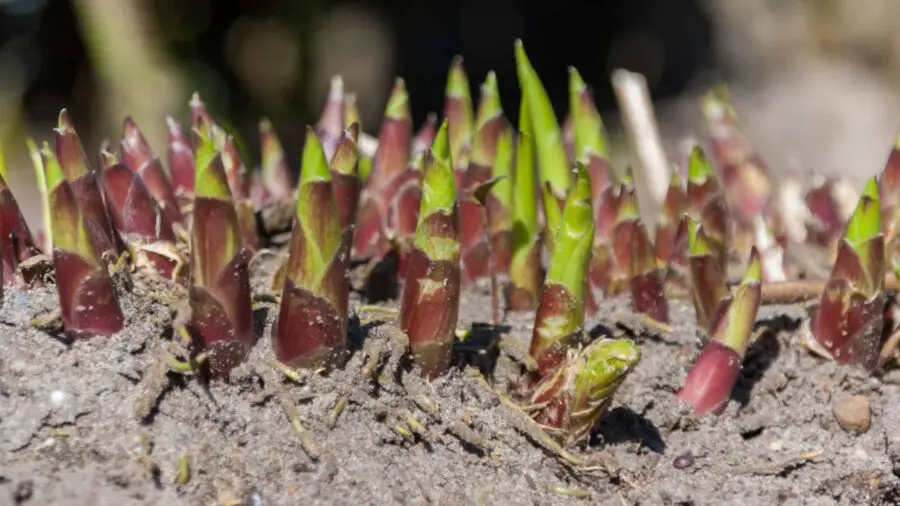
Generally, the more shoots that appear on a single plant and thrive, the fuller and bigger your plant will be by the end of the growing season
5. When Moving Hostas, Tie up the Leaves
Hostas have sprawling leaves, and they can get in the way when you’re trying to dig up around the base of your hosta to move it.
You risk damaging the leaves if they’re in your way by accidentally cutting them with your shovel or trowel. One simple way around this is to tie up your hosta leaves before you start moving it.
6. Don’t Divide Hostas to Make Them Grow Bigger
Dividing your hosta plants means you’ll end up with smaller plants than you originally had. If you want them to grow bigger, leave them be and give them optimal growing conditions. They should have enough water and a mix of shade and sun to take off.
7. Divide the Plants to Make Them Fuller
Any hosta you leave on its own will grow bigger than a hosta you divide or remove the offshoots from. Take a large hosta, divide and spread the smaller plants out in the area.
Planting more of the same hosta variety will give you faster results because dividing a large plant and spreading it out will fill the area faster than waiting for less but larger plants to fill the area in.
8. Routinely Clean Around Your Hostas
Over time, dead plant material and debris can build up around your hostas. You will want to clean around them routinely to remove these things because they make excellent hiding spots for slugs and bugs that could harm your plant.
I do a check and light clean every two weeks to keep everything looking nice and my plants healthy. Wish I could say the same for inside the house…
9. Use Mulch to Keep the Soil Moist
Hostas love water and moisture, so much so that it’s difficult to keep the soil moist enough to grow hostas big. Mulch is a good way to help retain moisture, and it can add nutrients to the soil if it’s a type that breaks down and rots.
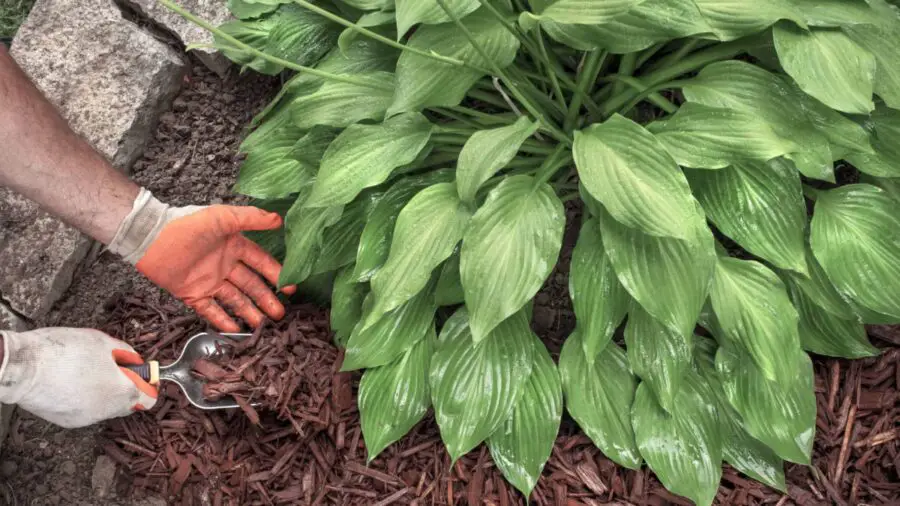
You want to keep it away from directly resting on your hostas to prevent too much water from gathering around the stems and rotting them.
10. Create the Best Soil for Your Hostas
Do you already have a good garden soil in place? Did you know you can improve it to grow hostas fast and help them thrive? Adding compost once or twice a year will improve your soil and is a top choice for a continuing soil improvement program.
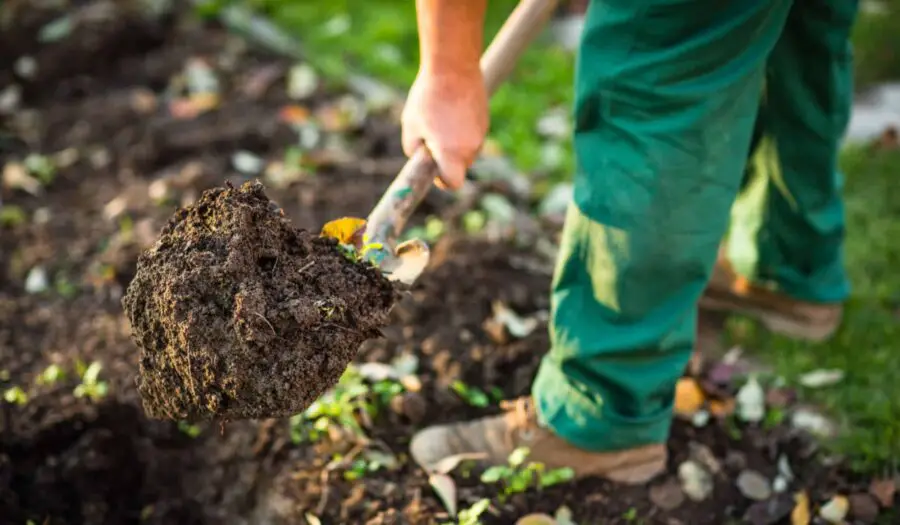
A high quality homemade potting mix for hostas is 10 parts Douglas fir bark mixed with one part of peat moss or coir and one part double-screened pumice. Add your favorite fertilizer and you’re good to go.
11. Choose Your Hosta Varieties Carefully
Which varieties of hostas do you want to grow? Generally , giant hostas are great for sprawling gardens or corners where you need to fill in space.
Popular varieties include the Gentle Giant Hosta, Empress Wu Hosta, Sum and Substance Hosta, Blue Angel Hosta, Hosta Victory, and the Dream Weaver Hosta.
For miniature, small, medium, or large hostas to fill in the shaded areas around your yard, look for Frances Williams, Patriot, Halcyon, Blue Mouse Ears, Sunpower, and Shadowland Coast to Coast hostas because they’re very beginner-friendly species.
12. Plant Your Hostas Correctly
Planting hostas can seem intimidating. It’s actually a simple process. Start by choosing your location carefully and deciding if you want any companion plants in your design. Roses and hostas grow well together.
Dig the hole for your hosta, making it the same depth it was in the pot. Add your hosta, backfill the hole, and lightly tamp down before applying a layer of mulch and giving it a good drink of water.
If you’re worried about weeds, plant your hostas in a rock garden to give in a splash of color, and the rock will act as a natural weed barrier.
13. Water Your Hostas Properly
Hostas grow rapidly and have big leaves, and this makes them water lovers. Ideally, you’ll give them a generous amount of water all season long.
Through the growing season, you want to give your hostas a deep, slow soaking at a rate of an inch per week. A single deep soaking session is better than trying to perform several lighter watering sessions.
14. Introduce Nutrients by Fertilizing Your Hosta Plants
Most gardeners will suggest having your hostas on a conservative feeding program. However, you can tweak this like I did to encourage fast growth as long as your hostas are getting enough water and in the correct lighting conditions.
Feed your hostas a slow-release fertilizer at the highest recommended rate for the formulation and brand. Another option is to feed a liquid fertilizer at a 200 ppm rate and a formula or 20-10-20 or 20-20-20 during the active growing season.
Of course if you are adding compost or manure once or twice a year that will suffice. Or top it off with a couple of applications of fertilizer in the spring.
15. Plant the Larger Hosta Varieties
Giant hostas create gorgeous centerpieces in your yard, even if they can take between four and six years to mature fully. They’re well worth the wait, and three varieties I have in my yard, including the deep green Empress Wu hosta that can grow 40 inches tall by 70 inches wide.
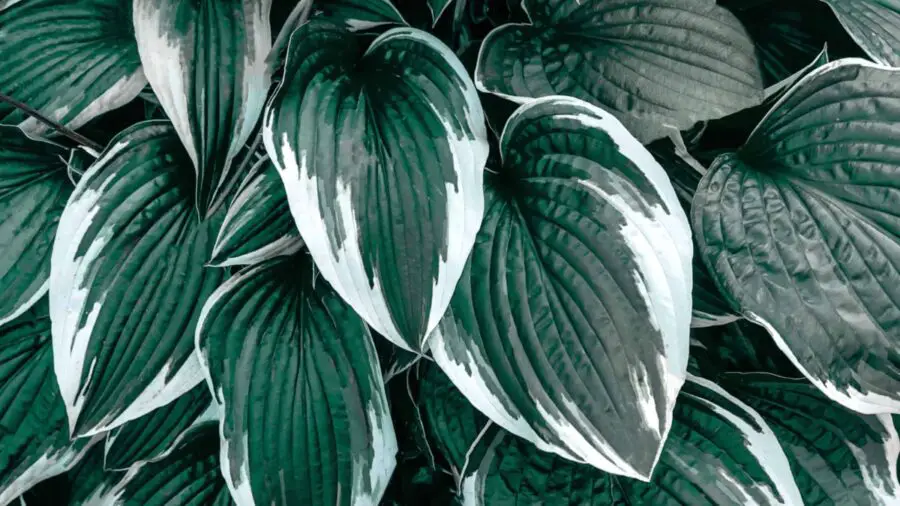
Lime green Sum and Substance hosta that can grow 32 inches tall by 72 inches wide, and the leathery T-Rex hosta that can grow 30 inches tall with an impressive 6-foot span.
16. Introduce Worms to Your Soil
If you don’t have a lot of worms in your soil, introduce them. Worms help to increase how much water and air makes its way into the soil.
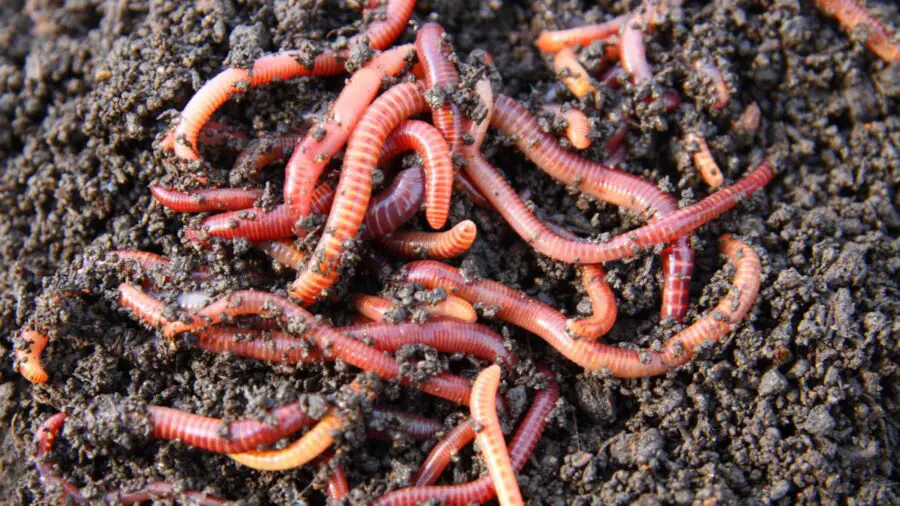
They also break down organic matter and leave behind casings that your hostas can use for natural fertilizer to boost their growth. They like loamy and loose soil that is rich in nitrogen and organic materials.
17. Use Epsom Salt for Bigger and Lusher Hosta Growth
Often when new gardeners realize their hostas aren’t coming up as they should be, the soil is lacking nutrients like magnesium. An easy way to introduce this mineral back into your garden soil is to add Epsom salts.
While this won’t be a miracle cure, it can do wonders for improving your overall soil health so your hostas thrive.
This is the best way to add magnesium to container plants. The longer the plant has been in the pot the more vivid the improvement.
18. Revive Your Dying Hostas
Get a jar and add enough water to cover the bottom stems and watch for root growth. Once they spout and start growing, replant it back outside.
19. Perform Routine Maintenance
Performing routine maintenance on your hostas is important to keeping them healthy. If you notice that the plant’s leaves have damage like brown or yellow spots, carefully trim it away.
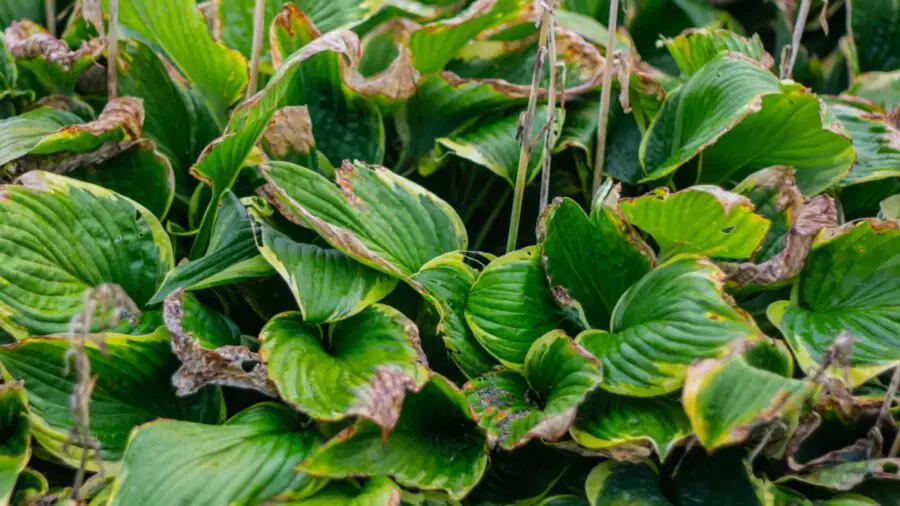
You can also cut away the flowers that have already bloomed and shriveled. This will help encourage healthy growth and keep your hostas full and lush.
20. Take Care of Pests
Hostas are hardy plants, but slugs and snails can wreak havoc on your hostas if you’re not careful. To help remedy this, keep the mulch away from the plant’s stem.
Take care of your pest problems before they become overwhelming.
21. Protect Your Plants from Disease
Make sure you maintain the correct mulch and water levels because this is key to keeping diseases at bay. If you see large spots on the leaves with a dark border, apply a fungicide spray.
Wilted and brown leaves with white masses are a sign of Sclerotium Blight, and you want to pull the mulch away from the plant if this is the case. Don’t over water your hosta. Water just enough to keep the soil nicely moist.
A well grown plant is far more resistant to disease than a plant this is struggling.
Closing Thoughts on How to Make Hostas Grow Bigger
Figuring out how to grow hostas big can be a process of trial and error. But, the real key to growing hostas or any other plant is don’t fuss with your plants all the time, don’t neglect your plants, learn to spot problems before they become overwhelming and enjoy your garden.
It’s that simple, and the tips and tricks I outlined for you will help you jumpstart your hosta growth so you end up with full, lush, and large hosta plants that make your yard look fabulous.
If you made it this far, you must have found the article interesting and hopefully helpful. If so, please bookmark it, as I will add new tips at random intervals.
